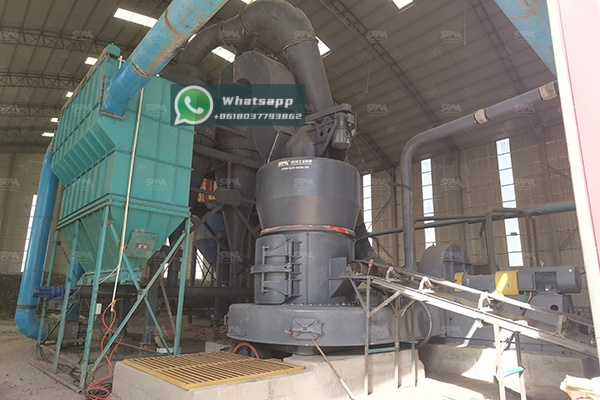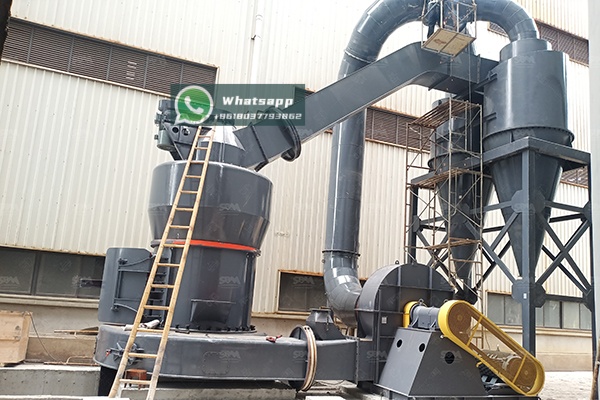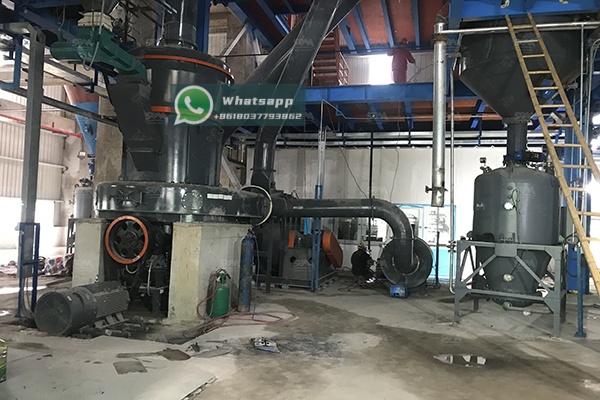The aluminum industry represents one of the most significant sectors in global manufacturing, with bauxite ore serving as the primary raw material for aluminum production. Efficient grinding of bauxite is a critical step in the Bayer process, which extracts alumina from bauxite before electrolysis converts it to pure aluminum. European mills processing bauxite require sophisticated grinding equipment that can handle the abrasive nature of bauxite while maintaining energy efficiency and operational reliability.
Shanghai Zenith Machinery Co., Ltd., as an excellent manufacturer of ore grinding equipment in China, has made significant achievements in the field of ultra-fine powder grinding. With specialized research, development, and production of industrial powder grinding equipment, Zenith offers comprehensive solutions tailored to the specific requirements of bauxite processing in the aluminum industry.

Bauxite grinding serves multiple crucial functions in aluminum production. First, it increases the surface area of the ore, facilitating more efficient chemical reactions during the digestion phase of the Bayer process. Second, proper grinding ensures uniform particle size distribution, which optimizes downstream processing and reduces energy consumption. The target fineness for bauxite grinding typically ranges from 75 to 150 microns, though specific requirements may vary based on bauxite composition and processing parameters.
European aluminum producers face increasing pressure to improve energy efficiency and reduce environmental impact. Modern grinding technologies must address these concerns while maintaining high throughput and consistent product quality. The selection of appropriate grinding equipment becomes paramount in achieving these competing objectives.
Historically, bauxite grinding has employed various technologies, including ball mills, rod mills, and conventional grinding systems. While these traditional approaches have proven effective, they often suffer from high energy consumption, significant wear part replacement costs, and limited control over particle size distribution. The abrasive nature of bauxite accelerates wear in conventional grinding systems, leading to increased maintenance requirements and operational downtime.
European mills increasingly seek advanced grinding solutions that address these limitations while incorporating modern automation and control systems. The integration of advanced classification technology with grinding circuits has emerged as a key strategy for optimizing bauxite processing operations.

Shanghai Zenith Machinery offers several advanced grinding technologies specifically suited to bauxite processing requirements. Among these, the LM Vertical Grinding Mill and MTW Trapezium Grinding Mill stand out as particularly effective solutions for European aluminum producers seeking to optimize their bauxite grinding operations.
The LM Vertical Grinding Mill represents a technological breakthrough in bauxite grinding efficiency. This innovative system integrates five functions—crushing, grinding, powder selection, drying, and material conveying—into a single compact unit. For European mills processing bauxite, this integrated approach offers significant advantages in terms of space utilization, energy efficiency, and operational simplicity.
The vertical design of the LM mill facilitates direct drying of moist bauxite using waste heat from other process stages, reducing the need for separate drying equipment. This feature is particularly valuable in European operations where energy costs remain high and environmental regulations stringent. The mill’s ability to handle bauxite with varying moisture content makes it adaptable to different bauxite sources and seasonal variations.
| Model | Plate diameter (mm) | Capacity (t/h) | Output fineness (μm) | Max feed size (mm) | Main motor (kW) |
|---|---|---|---|---|---|
| LM130K | 1300 | 10-28 | 170-40 | <38 | 200 |
| LM190K | 1900 | 23-68 | 170-40 | <45 | 500 |
| LM280K | 2800 | 50-170 | 170-45 | <50 | 1250 |
The LM Vertical Grinding Mill’s grinding roller and grinding plate design ensures optimal pressure for efficient bauxite comminution while minimizing wear part consumption. The use of high-chromium alloy materials in critical wear components extends service life significantly compared to conventional grinding systems. For European operations, this translates to reduced maintenance costs and improved operational availability.
The MTW Trapezium Grinding Mill incorporates multiple patented technologies that make it particularly suitable for bauxite grinding applications. Its compact structure, long service life, and eco-friendly design align perfectly with the requirements of modern European aluminum producers. The mill’s curved surface duct technology improves airflow efficiency, reducing power consumption while maintaining consistent product quality.
For bauxite grinding, the MTW mill offers several distinctive advantages. The bevel gear overall transmission provides stable operation and high transmission efficiency, crucial for maintaining consistent grinding performance with abrasive materials like bauxite. The internal efficient powder separator allows precise control over product fineness, ensuring optimal particle size distribution for downstream alumina extraction processes.
| Model | Max. Feed Size (mm) | Final size (mm) | Capacity (t/h) | Main motor (kW) | Fan motor (kW) |
|---|---|---|---|---|---|
| MTW110 | <30 | 1.6-0.045 | 3-9 | 55 | 55 |
| MTW138Z | <35 | 1.6-0.045 | 6-17 | 90 | 110 |
| MTW175G | <40 | 1.6-0.045 | 9.5-25 | 160 | 200 |
| MTW215G | <50 | 1.6-0.045 | 15-45 | 280 | 315 |
The MTW Trapezium Grinding Mill’s lubricating oil station provides reliable lubrication to the grinding roller bearings, extending service life and reducing maintenance requirements. This feature is particularly valuable in European operations where minimizing unscheduled downtime is critical to maintaining production targets. The mill’s modular design also facilitates easier installation and maintenance compared to traditional grinding systems.

European aluminum producers operate under strict environmental regulations and face high energy costs. The selection of grinding equipment must prioritize energy efficiency while ensuring compliance with emission standards. Both the LM Vertical Grinding Mill and MTW Trapezium Grinding Mill from Zenith incorporate advanced technologies that address these concerns.
The LM Vertical Grinding Mill’s integrated drying capability reduces overall energy consumption by utilizing waste heat from other process stages. Similarly, the MTW Trapezium Grinding Mill’s efficient transmission system and optimized airflow reduce power requirements compared to conventional grinding technologies. Both mills incorporate advanced dust collection systems that minimize particulate emissions, ensuring compliance with European environmental standards.
Maintenance requirements significantly impact the total cost of ownership for grinding equipment. The abrasive nature of bauxite accelerates wear in conventional grinding systems, leading to frequent component replacement and associated downtime. Zenith’s grinding mills address these challenges through innovative design features and material selection.
The LM Vertical Grinding Mill’s grinding rollers can be turned outward from the mill, facilitating maintenance and replacement without disassembling other components. This feature reduces maintenance time and associated labor costs. Similarly, the MTW Trapezium Grinding Mill’s easily replaceable wear parts and accessible design simplify maintenance procedures, improving operational availability.
Several European aluminum producers have successfully implemented Zenith grinding technologies in their bauxite processing operations. One notable example involves a major aluminum producer in Southern Europe that replaced traditional ball mills with Zenith’s LM Vertical Grinding Mills. The transition resulted in a 30% reduction in specific energy consumption, a 40% decrease in maintenance costs, and improved product consistency.
Another case involves a Scandinavian aluminum producer that integrated MTW Trapezium Grinding Mills into their expanded bauxite processing facility. The installation achieved a 25% increase in throughput compared to the original design specifications while reducing overall footprint requirements. The mill’s advanced control system integrated seamlessly with the plant’s existing automation infrastructure, minimizing implementation challenges.
The evolution of bauxite grinding technology continues to focus on improving energy efficiency, reducing environmental impact, and enhancing operational flexibility. Zenith’s ongoing research and development efforts align with these trends, with particular emphasis on digitalization and advanced process control.
Future iterations of grinding equipment for bauxite processing will likely incorporate more sophisticated condition monitoring systems, predictive maintenance capabilities, and advanced process optimization algorithms. The integration of grinding operations with other process stages through digital twin technology represents another promising development direction.
European aluminum producers face increasing pressure to improve efficiency, reduce environmental impact, and maintain competitiveness in global markets. The selection of appropriate bauxite grinding technology plays a crucial role in addressing these challenges. Shanghai Zenith Machinery’s LM Vertical Grinding Mill and MTW Trapezium Grinding Mill offer advanced solutions specifically designed to meet the demanding requirements of modern bauxite processing operations.
These grinding technologies provide European mills with the tools needed to optimize their bauxite grinding circuits, reducing energy consumption, minimizing maintenance requirements, and ensuring consistent product quality. As the aluminum industry continues to evolve, partnerships with technology providers like Zenith will become increasingly important for maintaining competitive advantage in European and global markets.
With proven performance in numerous installations worldwide, Zenith’s grinding equipment represents a reliable investment for European aluminum producers seeking to enhance their bauxite processing capabilities while addressing sustainability objectives. The company’s commitment to continuous improvement and customer support ensures that European mills can count on long-term performance and operational excellence from their grinding investments.